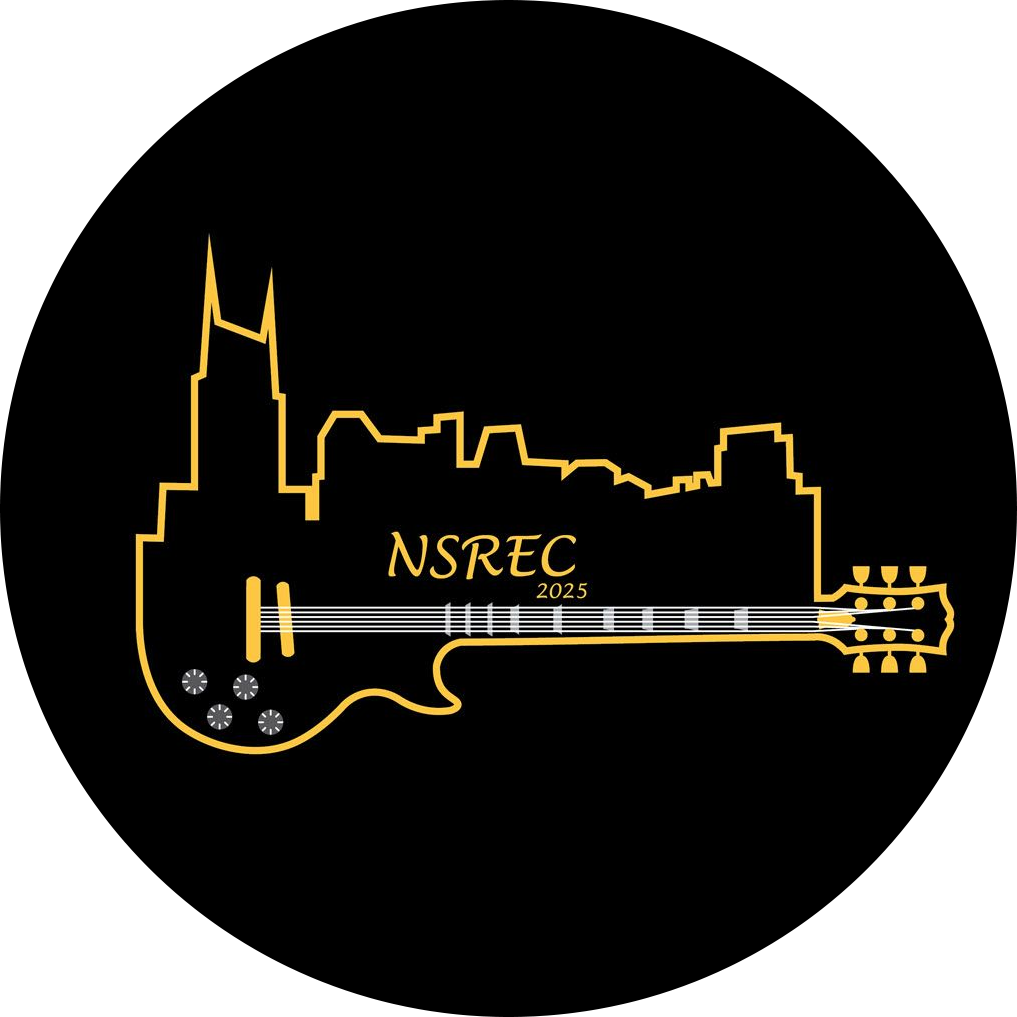2023 IEEE NSREC SHORT COURSE PROGRAM
RADIATION CONSIDERATIONS FOR BOARD-LEVEL COMPUTING SYSTEMS
SHERATON KANSAS CITY
EXHIBIT HALL B
MONDAY, JULY 24, 2023
7:00 AM
Breakfast
Short Course
8:00 AM
SHORT COURSE INTRODUCTION
Dr. Ethan Cannon, The Boeing Company
Short Course – Part I
8:10 AM
ADVANCEMENTS AND CHALLENGES WITH RADIATION- TOLERANT SPACEFLIGHT COMPUTERS
Dr. Tyler Lovely, US Air Force Research Laboratory
On-board computing demands for space systems are continually increasing due to
the need for real-time sensor and autonomous processing combined with limited communication bandwidth to ground stations. Although massive investments have been made by the electronics industry to advance the state-of-the-art in computing technologies, radiation-hardened technology requires longer lead times due to funding constraints, greater design complexity, and rigorous radiation testing and qualification requirements. Thus, the capabilities of radiation-hardened processors typically lag several technology generations behind commercial state-of-the-art technology. Due to changes in the spectrum of risk tolerance and a pivot from large and expensive long-duration missions to shorter-duration missions with more rapid technology refresh, increasing numbers of programs are considering and using small satellites, leading to high interest in leveraging commercial electronics. However, there exists little data quantifying the ability of commercial processors to operate reliably
in a space radiation environment. Furthermore, it remains highly challenging to keep up with the broad, diverse, and rapidly changing landscape of available architectures such as CPUs, GPUs, FPGAs, SoCs, AI/ML accelerators, and others. During this module, Dr. Tyler Lovelly, U.S. Air Force Research Laboratory, will provide an overview of the spaceflight computing technology area including recent advancements and challenges in designing, manufacturing, evaluating, and deploying radiation-tolerant computers to support the next generation of space systems.
9:40 AM
BREAK (Prefunction)
Short Course – Part II
10:10 AM
RADIATION EFFECTS IN FPGAS AND SOCS
Dr. Nadia Rezzak and Dr. Pierre Maillard, Microchip Technology and AMD, respectively
The ability to implement complex designs and evolving algorithms in reconfigurable devices makes Field Programmable Gate Arrays (FPGAs) attractive for many Terrestrial and Space applications, compared to fixed function Application Specific Integrated Circuits (ASICs).
Dr. Nadia Rezzak, Microchip, Inc. and Dr. Pierre Maillard, AMD, Inc., will discuss Radiation Effects in FPGAs and SoCs. The first part of the course will address the basics of SRAM and non-volatile based FPGAs architecture and their evolution to modern/complex System On Chip (SoC) and Adaptive Compute Acceleration Platform (ACAP) devices. Then we will discuss Single Event Effects (SEE) and Total Ionizing Dose (TID) mechanisms, errors classification, test methodologies and representative results. The final section will focus on mitigation techniques and challenges to address requirements for Terrestrial (telecom, automotive, datacenters, avionics, etc.), Defense and Space markets.
11:40 AM
Terrace and Atlanta Rooms
SHORT COURSE LUNCHEON
Short Course – Part III
1:00 PM
RADIATION EFFECTS IN DATA LINKS
Dr. Zachary Diggins, Cyclo Technologies
Advances in sensor and networking payloads place ever increasing demands on
data links. Additionally, reliable communication between different components on a spacecraft are critical for safe operation, while also potentially contributing to the spacecraft power and weight through harnessing and PCB requirements, making data links a critical design consideration. In this course, Dr. Zachary Diggins, Cyclo Technologies, will cover the radiation effects for the various data links on a single-board computer, from basic mechanisms through part selection considerations and testing strategies. Specifically, radiation effects in SerDes links for inter-chip communication will be reviewed, including clock generation and distribution considerations. Satellite bus communication protocols will be evaluated, including options for redundancy and wireless bus communication. A focused section will be included on optical communication technologies, including fiber based and inter-satellite data links, which have total-ionizing dose and displacement damage concerns. Finally, comparisons will be made to state-of-the-art terrestrial data center architectures.
2:30 PM
BREAK (Prefunction)
Short Course – Part IV
3:00 PM
EXPERIMENTAL EVALUATION OF ARTIFICIAL NEURAL NETWORKS RELIABILITY: FROM GPUS TO LOW- POWER ACCELERATORS
Prof. Paolo Rech, UFRGS (Brazil) and University of Trento (Italy)
Artificial Neural Networks are among the greatest advancements in computer science and engineering and are today used to classify or detect objects in a frame and to enable autonomous vehicles. Since neural networks are heavily used in safety-critical applications, such as automotive and aerospace, their reliability must be paramount. However, the reliability evaluation of neural networks systems is extremely challenging due to the complexity of the software, which is composed of hundreds of layers, and of the underlying hardware, typically a powerful parallel device.
In this course, Dr. Paolo Rech, UFRGS (Brazil) and University of Trento (Italy), will review fundamental concepts of Artificial Intelligence, Artificial Neural Networks, and parallel computing devices. Then, the course will detail the experimental setup required to have a deep and accurate reliability evaluation of an Artificial Neural Networks system. In particular, the guidelines for a successful neutron or heavy ion test of Graphics Processing Units (GPUs) and low-power accelerators, such as Tensor Processing Unit (TPU) or Systolic Arrays, will be provided. Specific attention will be given to the choice of the software, the neural network configuration, the input dataset, and to the experimental results analysis.
4:30 PM
SHORT COURSE WRAP-UP
Dr. Ethan Cannon, The Boeing Company
4:40 PM
EXAM (only for students requesting CEU credit)
5:00 PM
END OF SHORT COURSE

